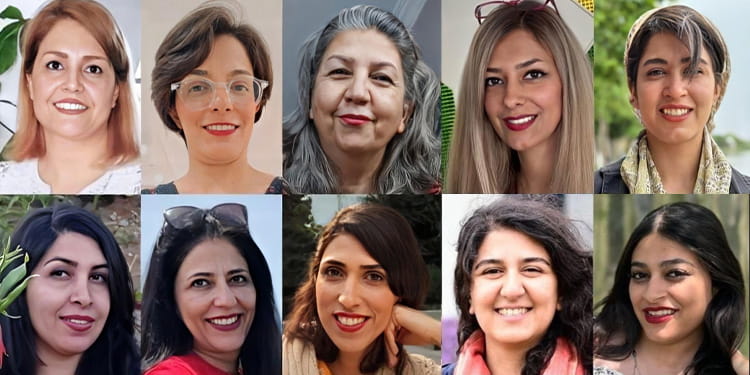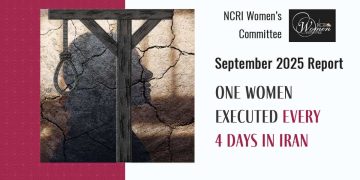Branch 47 of the Isfahan Court of Appeals has upheld a total sentence of 90 years in prison and additional penalties against ten Bahaii women, marking one of the harshest collective verdicts against Bahaii women in recent years.
The verdicts were issued against Shana Shoghi-Far, Negin Khademi, Neda Badakhsh, Arezoo Sobhanian, Yeganeh Rouhbakhsh, Mojgan Shahrezaei, Parastoo Hakim, Yeganeh Agahi, Bahareh Lotfi, and Neda Emadi.
According to the ruling, eight of these women were each sentenced to 10 years of imprisonment and fined 100 million tomans, while Bahareh Lotfi and Neda Emadi each received 5 years in prison and a 50-million-toman fine.
Additionally, the appeals court confirmed travel bans and restrictions on social media use for all ten Bahaii women.
The charges brought against them include “propaganda against the state,” “promotion and teaching of Bahaiibeliefs contrary to Islam,” and “collaboration with hostile groups against the regime.”
However, these accusations lack any legal basis and stem solely from the women’s peaceful religious and educational activities.
The sentences were reportedly issued in absentia and communicated orally to the defendants’ lawyers, who were denied full access to case files—a process that blatantly violates principles of fair trial and due process.
The ten Bahaii women were arrested on October 23, 2023, by security forces in Isfahan and released on bail after nearly two months of interrogation.
During interrogation at the Isfahan Intelligence Detention Center, the women were allegedly subjected to severe pressure and torture, including verbal abuse, threats, fingernail extraction, use of electric chairs, and threats of scalding with boiling water, to force false confessions.
They had previously been sentenced by the Isfahan Revolutionary Court to the same terms: 90 years of imprisonment, heavy fines, a two-year travel ban, and a two-year ban on using social media.























